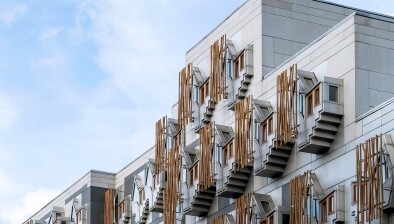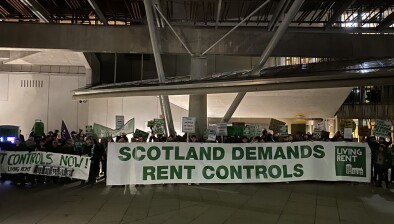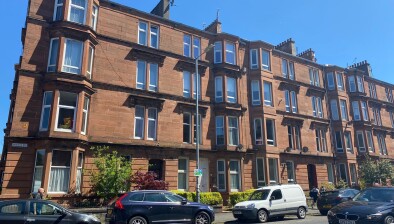Almost half of people made homeless due to rent arrears lived in private sector
 Almost half of people made homeless in Scotland due to rent arrears in the last year lived in the private rented sector (PRS), new analysis has shown.
Almost half of people made homeless in Scotland due to rent arrears in the last year lived in the private rented sector (PRS), new analysis has shown.
A total of 46% of homelessness applications were made due to either rent arrears or defaulting on payments come from the PRS, despite private-rented accommodation only accounting for 15% of Scotland’s housing stock.
Scottish Labour, which carried out the analysis of the Scottish Government statistics, said the figures highlight the need for an overhaul of the PRS where it said “soaring” rents and the likely impact of Universal Credit are seeing people lose their tenancies far too easily and “pushing people into homelessness”.
Scottish Labour’s housing spokesperson, Pauline McNeill, said: “Despite only accounting for 15% of Scotland’s housing stock, almost half of homelessness applications due to rent arrears are being made to those in debt to private landlords. It is now time for the SNP government to establish why this is happening and act to protect tenants from exorbitant rents.
“As rents continue to rise and wages stagnate, it is the poorest who are suffering from the SNP government’s failure to regulate the housing market properly and create affordable rents.”
Scottish Labour is proposing a Mary Barbour Law to stop rents spiralling further out of control and help tackle Scotland’s housing crisis.
The party said it will contact thousands of tenants and landlords in the coming months as part of a major discussion paper to guide their reforms to the private rented sector.
Scottish Labour leader Richard Leonard said the discussion paper is targeted at housing groups, landlords and tenants and seeks to develop a better picture of the sector across Scotland.
He added: “We need to reform Scotland’s private rented sector.
“Too many young families are caught in a vicious cycle – a lack of affordable public housing forces people to rent privately and as a result many are paying rip-off rents which stops them saving for a deposit to buy their own home.
“Our proposals for a Mary Barbour law will seek to regulate the private rented sector to ensure that no one is forced to rent a home that pushes them into poverty or falls below the standards needed to protect their physical and mental health and well-being.”
Housing minister Kevin Stewart said: “The UK government’s continued benefit cuts will remove £4 billion from people’s pockets by the end of this decade and have a detrimental impact on those on low incomes in all sectors.
“The roll out of the shambolic Universal Credit has exacerbated this further and the UK government’s freeze on the Local Housing Allowance (LHA) cap means in most areas of Scotland private rental costs have substantially outstripped what can be paid through housing benefit, meaning even those on the lowest incomes will need to supplement the shortfall from wider benefits or other income, leading to hardship or housing crisis.
“That is why we are investing over £125 million this year alone in welfare mitigation to protect those on low incomes from UK government cuts and have continually called on the UK government to change their policies on welfare which are hurting people.”
A UK government spokeswoman said: “Homelessness is complex, and cannot be linked to a single issue. The vast majority of Universal Credit claimants receive their payments in full and on time and we have already made numerous improvements to help people access support sooner.
“This includes removing the seven waiting days, making advance payments of up to 100% available, and introducing two weeks’ extra housing benefit for people joining Universal Credit from the old system.
“Meanwhile, the Scottish Government has significant powers over social security to both raise taxes and top up any reserved benefits and we remain committed to working with them to ensure a smooth transition of the remaining devolved responsibilities.”







